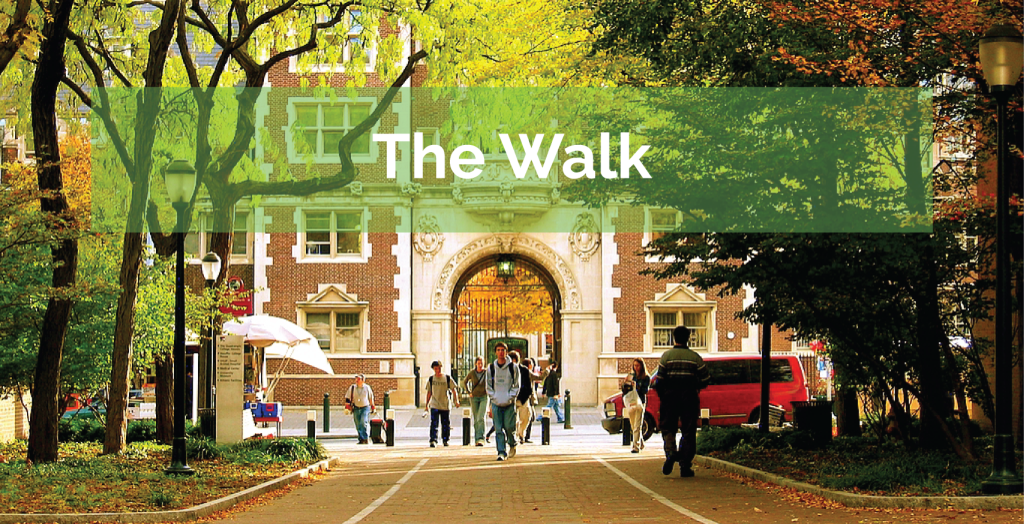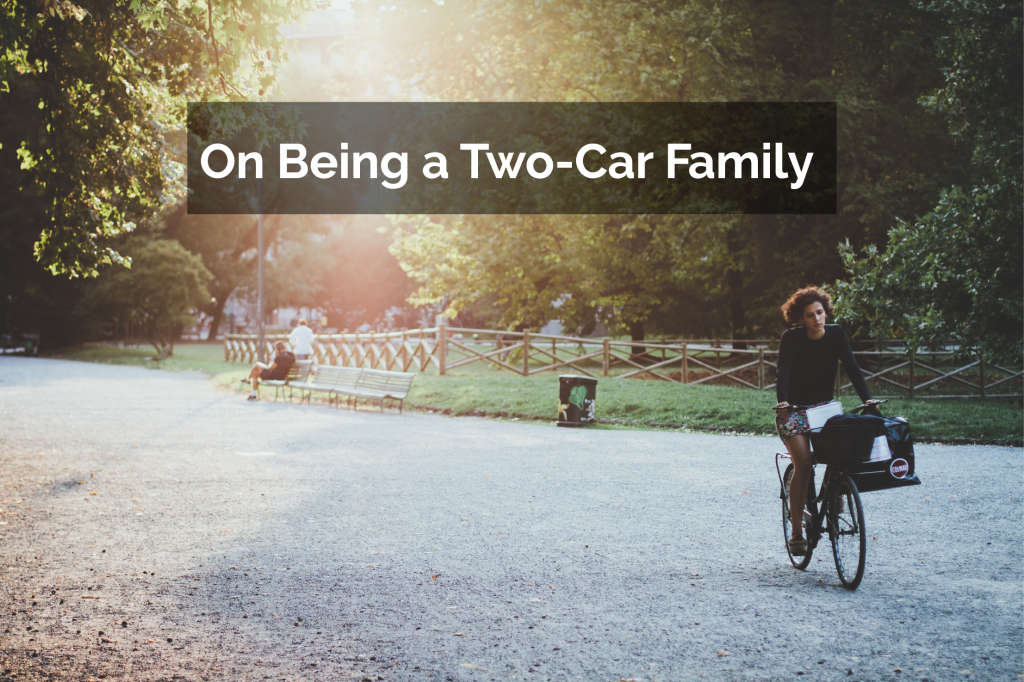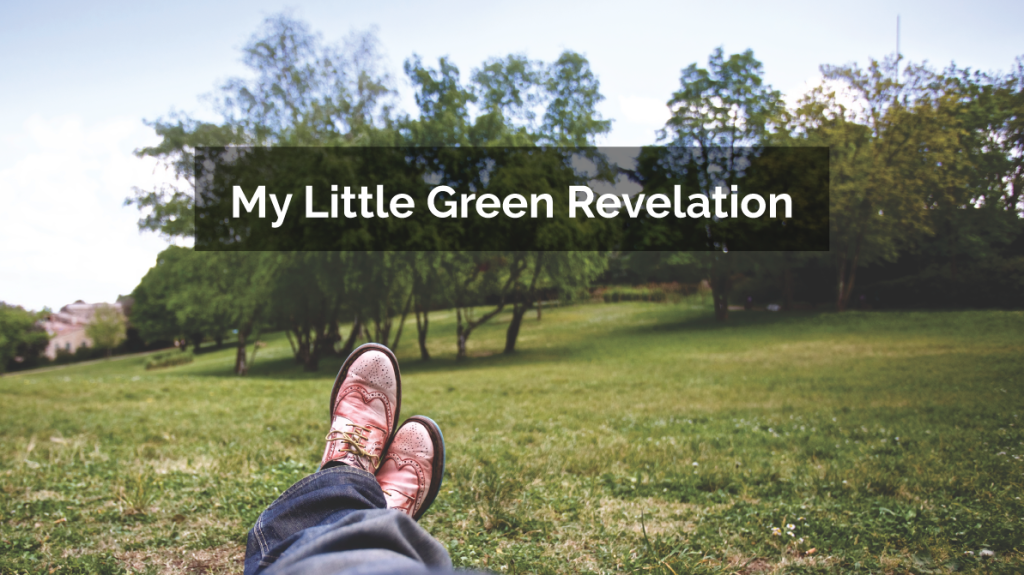-
The Walk

Shortly after falling down the FIRE rabbit hole last spring, I started looking into ways I could save more aggressively for retirement. As I mentioned in my first post, I thought I was doing ok by participating in my employer’s mandatory retirement program and maxing out my Roth IRA through Vanguard, but I didn’t realize I could be doing so much more. A trip to the Mr. Money Mustache investing forums lead me to the realization that I could voluntarily contribute additional pre-tax money to a retirement account, which would lower my tax burden and accelerate my retirement savings significantly. Because I work for a public university, my pre-tax retirement investment vehicle is a 403(b).
The Paperwork
Figuring out how to start contributing additional money to a retirement account wasn’t entirely obvious, and took a little digging on my university’s HR website. Once I found the form, I filled it out and printed it off. The maximum I could voluntarily contribute was $18,000 a year, or $1,500 a month. I cringed at the idea of that number, as it is a rather large chunk of my gross pay. But I decided to give it a try – $500 a month at first, a test to see how it felt in my budget to have a smaller pay check the next month.
The Walk
For better or for worse, each time I want to change my voluntary retirement contribution, I have to fill out and print the form and then walk it across campus to the administration building. This process doesn’t make it easy to change your contribution since you can’t click a button and change it instantaneously over the internet. I also worry that there are people out there (like me a year ago) who don’t know this is an option and don’t know how to get started. However, lacking the ability to make instantaneous changes could also be viewed as a good thing, since it prevents you from changing your contribution every time you decide you need more spending money! I have done this walk four times now, and each time I feel like I’m getting away with something. I carefully fold the paper in half, shielding its contents from any colleagues I might run into on my cross-campus trek. What if they found out I was contributing extra to my retirement account? Would they think I was getting paid too much? Would they say something snide about how their budget doesn’t allow for that? Or maybe we’re both a part of the secret super-savers club? This is a dumb thing to be anxious about, but there it is. At the same, I feel incredibly proud, grateful, and empowered that I am able to do this for my future self. I open the door to the payroll office and mutter something to the administrative assistant about wanting to change my retirement contribution. She glances over my paperwork before entering the change in her computer and I head out the door – one more tiny personal finance triumph.
The Leap
Back to my $500 experiment. To my pleasant surprise, the pre-tax deduction meant that my pay check only went down by about $350 for that first month after I started the voluntary retirement contributions. That meant $150 wasn’t going to taxes, and that money would grow tax-free for the next 30 or so years. Sweet! After a few months of my $500 experiment, I upped it to $800, then $1100, and this past week I finally made the leap to the full $1500 to be deducted from my July paycheck. Tripling my voluntary contribution over the last year or so was no small task and it was made possible by a number of factors:
- Gradually making myself comfortable with less take-home pay and adjusting my budget accordingly
- Two small annual pay increases that enabled me to increase my pre-tax contribution without seeing an additional reduction in my take-home pay
- Paying off my car loan, freeing up several hundred dollars per month that is no longer required for car payments
- No big financial surprises in the last year that couldn’t be covered with cash savings
The Future
I may not stay at the full $1500 contribution forever. Mr. Green and I may change our savings goals – specifically, we may move to a larger house in the next few years and my share of the mortgage will be larger. I may encounter other financial bumps in the road. However, for now it’s something I’m going to try to protect. This may mean making sacrifices in other parts of my budget, but prioritizing retirement savings is something that is really important to me right now. After 11 years of school + post doc, I didn’t really start saving for retirement in a significant capacity until I was almost 30. I have a lot of catching up to do, and we all know it’s better to do that sooner rather than later.
Have you tried increasing your pre-tax retirement contribution?
-
On Being a Two-Car Family

It wasn’t until recently that I really came to terms with the cost of owning a car. I’ve owned a car since I started driving, starting with the cliché of the hand-me-down station wagon, and most recently with my first new car purchase. That’s right, personal finance universe, I purchased a new car four years ago, and I took out a car loan to do it. It’s paid off now – just within this last month – and my recent personal finance revelations have left me with a lot of mixed feelings about twenty thousand of my hard earned dollars being locked up and frittered away on an object that frankly doesn’t get used all that often, and is just depreciating in my driveway.
What’s My Real Excuse For Owning a Car?
We do not live in an urban area with all of the light rails and mega busses and convenient airports and what have you. If we want to get to the airport, we have to drive, or pay to take the shuttle van. If we want to go anywhere for the weekend, we have to drive. If we want to recreate with our canoes and kayaks, we drive. We drive to see family, we drive to go to neighboring towns for activities or events, we drive across town to the park with our dog.
In addition to this weird little personal finance hobby, I am also a passionate advocate for active transportation. That means biking, walking, and multimodal transportation, and having safe enough infrastructure to make these transportation choices possible. I bike and walk a lot, and try to do it whenever possible. Yes, there are hurdles to this lifestyle, but as with all things that go against the status quo, there are also excuses.
I reside in a two-person household, and we currently live very close to my place of work. Despite choosing to bike and walk to work a majority of the time, I haven’t been able to fully commit to this lifestyle and become a one-car household. The onus would definitely be on me to bike and walk more often since 1) I enjoy it more than my significant other, and 2) my workplace is closer. The idea of sharing a car with my partner has been the other sticking point in me not being able to surrender personal car ownership. Mr. Green and I are not married, although we have been together for many years now, and we intend to be married within the next year or so. I’ve been burnt in a big way in a past relationship, and I can’t get over the small measure of security that is offered by owning a separate vehicle. In no way has it ever come down to this (or even close) in our relationship, but there’s a peace of mind knowing that I could hightail it out of this town with my dog and several of my favorite earthly possessions if things ever turned sour. My anxiety in becoming a one-car household is compounded by the fact that my family is located several hours away from where we’re living now, and owning a car means I can head to my hometown at any time for any reason, without pre-arranging for a rental car or car-sharing schedule with my significant other.
Cars Are Uncool and The Sharing Economy
I’m a Millennial (an old one), and the internets tell me all the time that the youths are not buying cars! Cars are for unhip suburbanites! We live in cool cities now. Or wait, maybe we are buying cars, but spending less as a share of our total consumer spending? One thing’s for sure – after a slump in annual miles driven during the recession and recovery (because gas was expensive and nobody had jobs), we (as a nation) are driving a lot more miles again, and we’re buying a lot more cars, too.
But your average car is very wasteful, and I’m not even making this argument from a fossil fuel standpoint. People who live in urban areas know that cars take up a lot of room, and unless you’re driving your personal vehicle for work purposes, basically everyone’s car sits unused 95% of the time. 95%!! People in my town also expect parking to be free and readily available, and any discussion about removing parking for bicycle or pedestrian amenities is promptly met with pitchforks and torches. With my routine of biking and walking as much as possible, I wouldn’t be surprised if my car sat idle more than 99% of the time in any given month. Simply put, owning a car is a really expensive luxury that I could probably do without.
While urban areas benefit from public transit, everyone in the US knows this can be a dicey prospect at best. Even if you live in a part of the country with amazing transit, you still may need to leave that part of the country on occasion to come back to visit your family in Middle America. Once you land at the airport, you’ll have to rent a car or borrow your relative’s station wagon for the week, since there probably isn’t a light rail connecting the airport to your parent’s house. In my town we have pretty good busses, and maybe like two cabs. We also have an intermittent Über driver population, but as we are a university town, those late night fares are harder to come by in the summer months and there just aren’t as many Über drivers around to chauffeur us townies.
Then there’s the question of robot cars. Will they save our transportation system or destroy it? Will I be able to share a robot chauffeur? And will we ever be able to teach them to drive in the snow?
Parting Thoughts
With my car freshly paid off last week, I don’t anticipate getting rid of it any time soon. I’m not ready to give up the luxury and security of having a personal vehicle. I know it’s a huge privilege to have a working, reliable car, and I’m very thankful that I can afford it. However, anyone venturing down the road to financial independence needs to carefully analyze the true costs of owning a car and how it can affect their long term financial goals.
Would you ever consider giving up your personal vehicle? Or have you already done it?
-
My Little Green Revelation

About a year ago I was reading an article on Get Rich Slowly, looking for inspiration to eat out less often. Like a lot of people do from time to time, we’d hit a rut, and we were eating out way too much. It was taking its toll on our pocketbooks (and our waistlines) and I needed inspiration and motivation to give it up and get back in the kitchen. Scrolling through the comments on this post I stumbled on one from Mrs. Frugalwoods, wherein she revealed that not eating out is part of the formula that enables her family to save 71% of their take-home income. 71%!! I didn’t even understand how that was possible while leading a normal life that didn’t resemble your own personal episode of “Extreme Cheapskates.” Instead of writing this off as another crazy internet comment, I clicked. I clicked and I fell down that rabbit hole, and I haven’t looked back.
I spent 11 years of my life as an undergraduate student, PhD student, and post-doc (and survived almost debt-free), but it wasn’t until I was almost 30 that I was able to start thinking about the investing side of the personal finance equation and not just the frugality side. I’d been reading personal finance blogs since graduate school, and I’m sure to some extent they helped me survive a decade of education with a minimal debt load. During graduate school, I could never manage to save more than a hundred dollars each month, if that. Most of my graduate school savings was socked away as emergency funds in case my aging car needed another major repair, or I had to pre-pay for conference travel, or pay for yet another apartment deposit (since I managed to move almost every year). Now that I was a grown-up with a “real job,” I thought I was doing pretty good – maxing out my Roth IRA and participating in my employer’s retirement program, with a little cash savings and some nebulous goals. So when I stumbled upon this comment, I definitely wasn’t a newbie to the world of personal finance, and I was probably doing better than a lot of Americans. But 71%!! How? And WHY? I had to learn more.
So I keep reading. And, not long after, I stumbled upon The Man, The Myth, The Mustache. I heard from people that, like me, spent a decade of their life in school. I read about people a few years older than me that were getting ready to make the jump into early retirement. People who had some really interesting thoughts about money and life in general. And I read about people that retired at the same age I was currently. Although some of them made a lot more money than me during their working years, some of them didn’t. They all had different goals – to pay off debt, travel extensively, retire early, buy a homestead, spend time with family. Regardless of their goals, their methods had a lot of similarities. Spend money mindfully. Analyze your expenses. Be an educated, DIY investor. Escape the consumer culture and be grateful for what you have. Cook at home. Learn new skills. Spend time outside.
I liked these goals. And, I liked the fact that pursuing this lifestyle could lead me to a certain level of financial freedom I didn’t think was attainable at my income level. I was already working towards a lot of these things, but I knew I could do better. So, in the last year I have learned that focused frugality, living simply, and educating myself about investing could allow me to retire decades earlier than the average American, to provide financial support for my family members, or become the philanthropist I have always wanted to be – in a nutshell, that was my little green revelation.
I’m still not 100% sure what I’ll talk about on this blog, but I had too many thoughts bubbling up inside of me, and too many really fantastic Twitter conversations with others along this path to stay quiet for much longer. My goals and initial focus are likely to be along the lines of:
- Aggressively saving my green and staying out of debt
- Living a greener life by reducing wastefulness
- Loving the green outdoors and growing some of our own food
I’m also hoping the PF community can help keep me accountable and to refine my financial goals as I continue on my journey to financial freedom. Thanks so much for reading, and if you’re reading this – you were probably part of the inspiration that started me down this path in the first place!
-
Subscribe
Subscribed
Already have a WordPress.com account? Log in now.